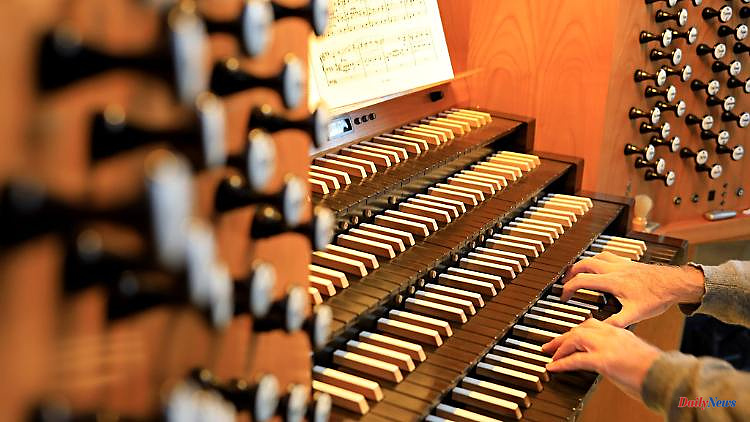Regular play keeps the organs in Thuringia's churches, chapels and concert halls in good condition. Securing that could become increasingly difficult.
Erfurt/Waltershausen (dpa/th) - Concert halls, churches and chapels are finding it difficult to find players for their organs. The instrument of the year 2021 is standing around unplayed in numerous houses, because the offspring are not coming. "There are still many young people who are enthusiastic about and play the organ. Ultimately, however, it is not enough," said Theophil Heinke, President of the Thuringian Organ Summer in Waltershausen.
The Thuringian Organ Summer Association was originally founded in Arnstadt with the aim of saving the unique Thuringian organ landscape and drawing attention to its endangered condition. The association now has around 130 members.
"The organs should be played," says Heinke. The queen of instruments needs regular play to stay fit. But it is becoming increasingly difficult to guarantee this.
According to Heinke, Corona has made the situation even worse. In the years before the pandemic, it was still possible to win pupils for the instrument with workshops as part of the organ summer. Since this has not happened for the third year in a row, the search for organists for services is also becoming increasingly difficult.
The problem usually affects rural areas more than cities, says Christoph Zimmermann, organ consultant at the Evangelical Church in Central Germany. The fact that most of the approximately 2,000 Thuringian instruments are in churches and chapels and that half are in worse than good condition does not necessarily help. "A good instrument motivates to play. But if the instruments are not in good condition, nobody wants to play them," said Zimmermann. In addition, the organ is not an instrument for the home. "The problem with organs is that you have to go to them to practice; usually in a cold church."
But there are also no organists at the heated State Music Academy in Sondershausen. The instrument has been standing around for around five years and, to put it bluntly, is serviced almost more regularly than it is played - once a year the tones are "cleaned", the ventilation is serviced, but when it gets high, the instrument is only played two or three times a year . "We tried to give organ courses, but the offer didn't meet with any interest," said a spokeswoman. The organ is probably a bit underestimated as an instrument and seen as a bit dusty because of church music.
The organ is considered the king of instruments and is the deepest and highest as well as the loudest and quietest, but above all the largest of all musical instruments. It has its origin in Egypt. But Germany is one of the most important countries in the world for the further development of organ building and organ music. In 2017, UNESCO declared German organ building and the associated musical repertoire to be an intangible world cultural heritage.












